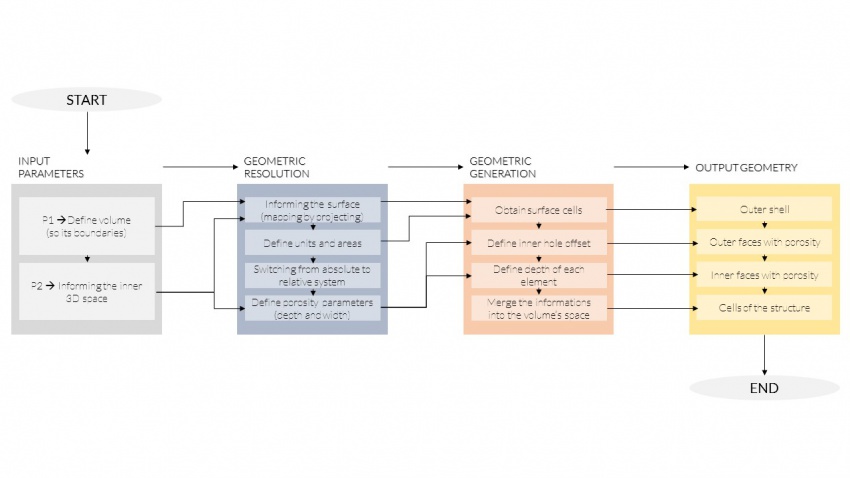Difference between revisions of "Msc1G2:Workshop11"
From rbse
| (3 intermediate revisions by one user not shown) | |||
| Line 27: | Line 27: | ||
<br> | <br> | ||
Then every unit gets a unique percentage of porosity defined by its area so that the structure is kept in the perimeter. Finally, dependently by the porosity, the depth of those units is determined. | Then every unit gets a unique percentage of porosity defined by its area so that the structure is kept in the perimeter. Finally, dependently by the porosity, the depth of those units is determined. | ||
| + | |||
| + | [[File:WK2AFCHART.JPG|850px]] | ||
<br> | <br> | ||
<br> | <br> | ||
| + | [[File:WK2AGRASS.jpg|850px]] | ||
<br> | <br> | ||
<br> | <br> | ||
| − | + | <br> | |
| − | [[File: | + | <br> |
| + | <br> | ||
| + | <br> | ||
| + | <br> | ||
| + | <br> | ||
| + | [[File:WK2APIC2s.jpg|850px]] | ||
| + | <br> | ||
| + | <br> | ||
| + | [[File:WK2APIC1s.jpg|850px]] | ||
Latest revision as of 13:57, 17 October 2016
Andrea Fusaro
The aim of the project is to inform, starting from a volume and a collection of points in it, the volume’s surface in order to achieve a characterization of the porosity both in the tangential and perpendicular directions.
First of all, the volume is defined and filled with a cloud of points, so that any of them finds a corrisponding on the surface of it: the mapping will allow to obtain a multitude of planar surfaces.
Then every unit gets a unique percentage of porosity defined by its area so that the structure is kept in the perimeter. Finally, dependently by the porosity, the depth of those units is determined.



